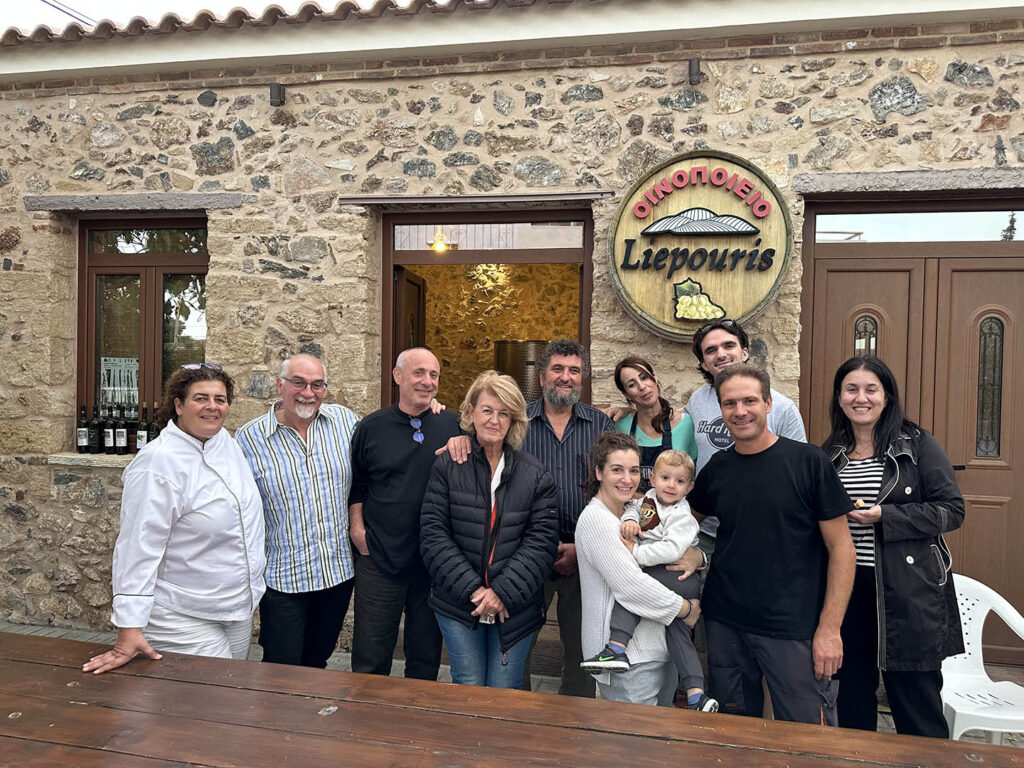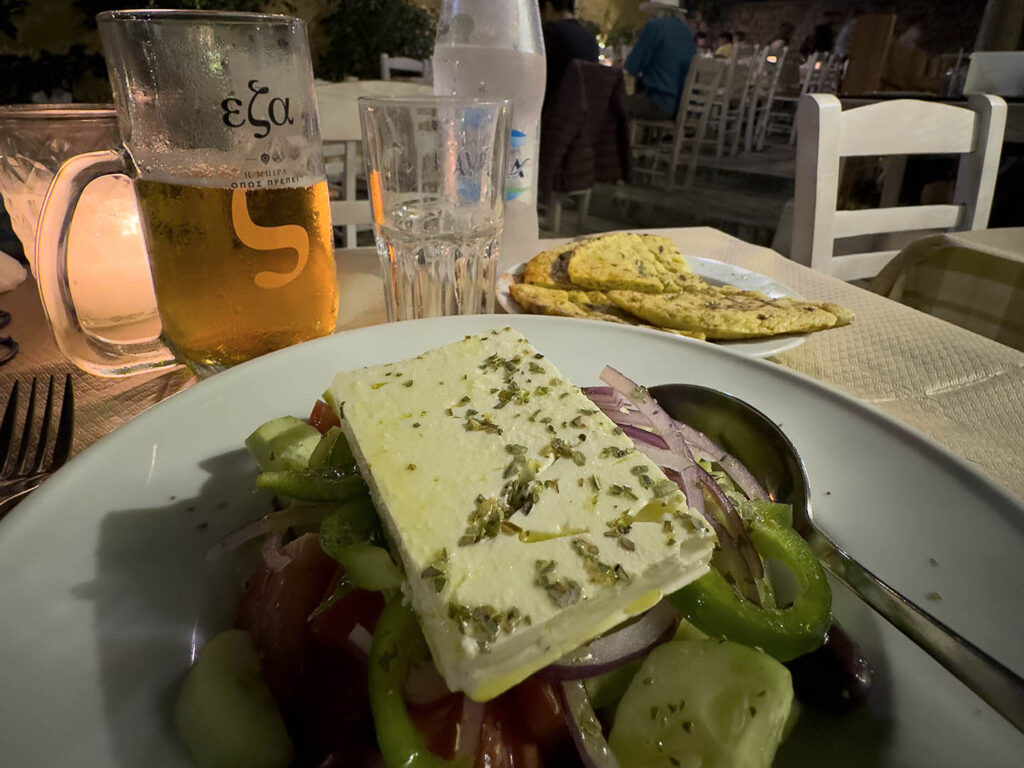
Traveling to Greece for food offers unique and wonderful culinary adventures deeply rooted in tradition and flavor. From the sun-kissed islands to the bustling cities, Greece tantalizes taste buds with its rich tapestry of Mediterranean cuisine. Indulge in the simplicity and freshness of Greek ingredients, from succulent olives and creamy feta cheese to ripe tomatoes and fragrant herbs. Sample iconic dishes like moussaka, souvlaki, and spanakopita, each bursting with layers of amazing flavors and rich history. The warmth of Greek hospitality extends to every meal, whether you are dining in a cozy taverna by the sea or exploring the labyrinthine streets of Athens. Embrace the culture of meze, where small plates encourage sharing and savoring every bite. In Greece, food isn’t just sustenance—it’s a celebration of life, bringing people together in joyous feasts that honor tradition and create unforgettable memories.
Greek cuisine is known for its adherence to the Mediterranean diet, which emphasizes fresh fruits and vegetables, whole grains, fish, olive oil, and a moderate consumption of dairy and wine. It is renowned as a popular foodie travel destination for several reasons, including (but not limited to):
- High-Quality Fresh Ingredients: Greece’s climate and geography provide an abundance of fresh and flavorful ingredients, including ripe tomatoes, fragrant herbs like oregano and thyme, olives, and seafood sourced from the surrounding Mediterranean Sea. Try their fresh grilled octopus, fried calamari, or traditional Greek fish stew (psarosoupa) made with the catch of the day.
- Exceptional Lamb: Greece has a long history of sheep breeding, and lamb holds deep cultural significance in Greek cuisine and traditions. It is often featured in celebratory meals and festivals, particularly during religious holidays, as it symbolizes abundance, hospitality, and tradition. It is a staple ingredient in many classic Greek dishes, from souvlaki and gyros to moussaka and kleftiko.
- Diverse Culinary Heritage: Different regions in Greece have their own unique culinary traditions and specialties, which vary based on local ingredients and historical influences. For example, in Crete, you might find dishes featuring local cheeses and wild herbs, while in the Cyclades islands, seafood dishes are prevalent. Greek cuisine has been influenced by thousands of years of history, including ancient Greek, Roman, Byzantine, and Ottoman cultures. This rich culinary heritage has contributed to the diverse flavors and cooking techniques in Greek cuisine today.
- Incredible Wines: Greece has a long and storied history of winemaking, dating back thousands of years, and this heritage brings a depth of tradition, expertise, and innovation to Greek winemaking practices. Their passion for their wines is evident in every sip. Whether enjoyed with fresh seafood, savory meats, flavorful cheeses, or vibrant mezze dishes, Greek wines have a versatility that greatly enhances the dining experience.
- Charming and Welcoming Atmosphere: Greek hospitality, or “philoxenia,” is deeply ingrained in the culture. Visitors to Greece often experience warm welcomes and generous portions of delicious homemade food in tavernas and family-run restaurants.
- Street Food Culture: Greece offers a vibrant street food culture, with options like souvlaki (grilled meat skewers), gyro (meat roasted on a vertical spit), and spanakopita (spinach and feta cheese pie) readily available from vendors and small eateries.








What foodie activities can you participate in while visiting Greece?
Greece offers many wonderful foodie activities for travelers seeking to immerse themselves in the rich culinary culture of the country. Here are some of the most popular food-related activities you can enjoy on your next vacation to Greece, which will deepen your appreciation for Greek cuisine while creating memorable culinary experiences:
- Cooking Classes, Workshops, or Demonstrations: Join a cooking class to learn how to prepare traditional Greek dishes such as moussaka, tzatziki, or spanakopita. Many cooking classes occur in local homes or restaurants, providing an authentic hands-on experience. You can also attend culinary workshops and demonstrations led by local chefs and food experts to learn more about Greek cooking techniques, food pairings, and the cultural significance of different dishes.
- Food & Wine Tours: Embark on a guided food or wine tour of Greek cities like Athens, Thessaloniki, or Heraklion, where you can sample a variety of local specialties at markets, bakeries, tavernas, and street food stalls. Visit vineyards and wineries on the islands of Santorini, Crete, or Rhodes to sample unique Greek varietals such as Assyrtiko, Xinomavro, and Agiorgitiko. These tours often include visits to historical sites and landmarks as well.
- Food Market Tours: Explore bustling food markets such as Athens’ Central Market (Varvakios Agora) or Thessaloniki’s Modiano Market. Wander through the stalls filled with colorful fruits, vegetables, spices, cheeses, and cured meats, and interact with local vendors.
- Food Festivals: Attend food festivals and culinary events held throughout the year in different regions of Greece. These festivals celebrate seasonal ingredients, local specialties, and traditional recipes, offering opportunities to taste various dishes and learn about Greek gastronomy.
- Olive Oil Tasting: Greece is one of the world’s leading producers of olive oil. Take part in olive oil tasting sessions to learn about the different varieties and production methods while sampling fresh olive oils paired with bread or local cheeses.
Are you ready to book your Greece vacation?
Greece has a robust infrastructure that supports its extensive culinary tourism, including cooking classes, food tours, and gastronomic festivals that showcase the country’s diverse culinary traditions to visitors from around the world. Greece’s combination of fresh, high-quality ingredients, rich culinary heritage, and warm hospitality make it a must-visit destination for food enthusiasts.
Have you been to Greece? What was your favorite food? Where did you go? Did you take any classes? Did you go on any tours? Let us know in the comments!



